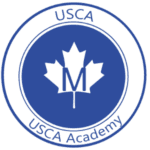Canada is one of the best places for post-secondary education. If you are an international student or non-native English speaker, you must prove your English communication skills by taking the Test of English as a Foreign Language (TOEFL) exam. It will assess your writing, speaking, reading, and listening skills. Getting a good score can increase your chances of getting admitted into the school of your choice. Like IELTS, TOEFL requires preparation if you want to do well.
Each section of the exam is worth 30 points, so it’s important to prepare and build your confidence in all the categories. Below are some tips to help you study more effectively for your TOEFL exam.
Understand TOEFL’s exam format
One of the ways to prepare for TOEFL is to become familiar with the exam’s pattern. Take the time to understand the format of the online or offline (paper-based) exams, so you can set realistic expectations and pace yourself.
Create a study plan
Find out your university’s target score and aim to reach it. Then, set an effective study schedule for every section: reading, speaking, listening, and writing. Try to find your pain points in each section and work on them to increase your chances of scoring higher.
Answer practice tests
Effective TOEFL preparation involves solving practice exams. Why? Because it familiarizes you with the types of questions that are likely to appear on your test day. Plus, it will help identify your weaknesses and areas where you are having difficulty.
Practice reading
Train yourself to pick up your reading pace while grasping a sentence’s context. That way, you can save time and answer questions better.
Practice your English
Focus on English media, like e-books, audio, podcasts, and news, to improve your active listening skills. It’s also a great way to get used to various English accents.
Sign up for a course
Do you need help with TOEFL preparation help? Sign up for our course here at USCA Academy. Our seasoned educators will work with you to provide a personalized learning program that can improve your confidence in English communication.





